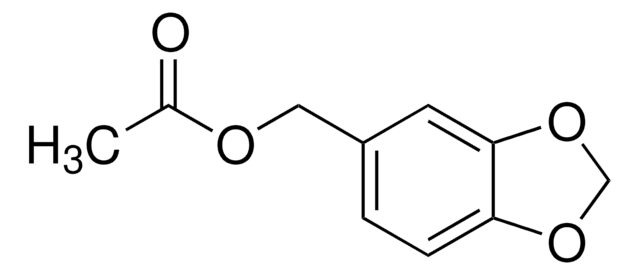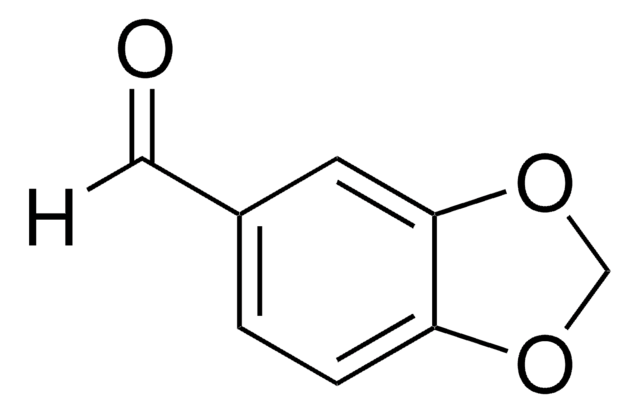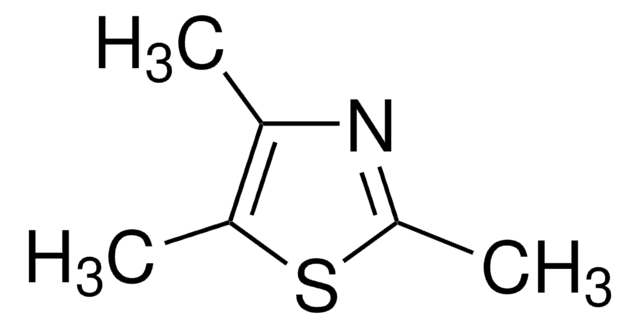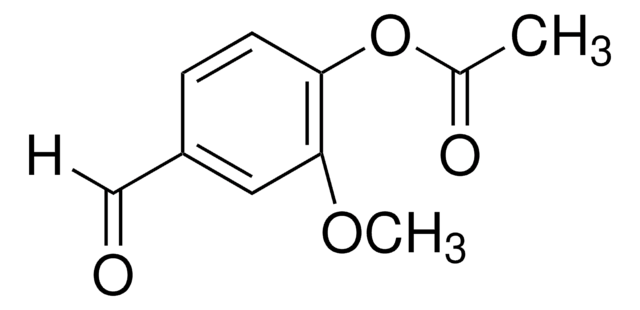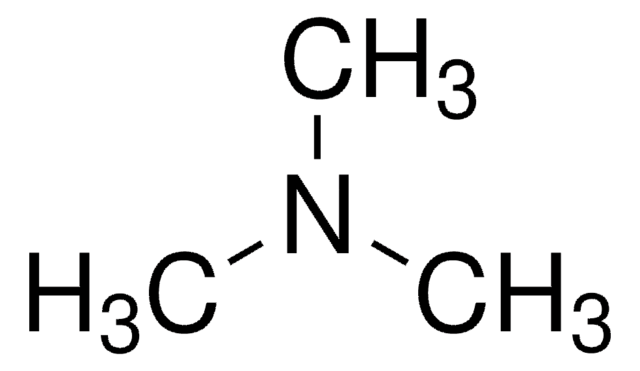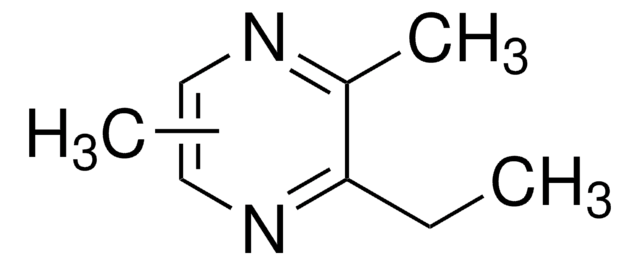About This Item
Recommended Products
biological source
synthetic
grade
FG
Agency
meets purity specifications of JECFA
reg. compliance
EU Regulation 1334/2008 & 872/2012
FDA 21 CFR 110
Assay
≥97%
refractive index
n20/D 1.521 (lit.)
bp
158 °C/742 mmHg (lit.)
density
1.07 g/mL at 25 °C (lit.)
application(s)
flavors and fragrances
Documentation
see Safety & Documentation for available documents
food allergen
no known allergens
Organoleptic
fishy
SMILES string
Cc1ncsc1C
InChI
1S/C5H7NS/c1-4-5(2)7-3-6-4/h3H,1-2H3
InChI key
UWSONZCNXUSTKW-UHFFFAOYSA-N
Looking for similar products? Visit Product Comparison Guide
Related Categories
Signal Word
Danger
Hazard Statements
Precautionary Statements
Hazard Classifications
Acute Tox. 4 Oral - Eye Dam. 1 - Flam. Liq. 3 - Skin Irrit. 2 - STOT SE 3
Target Organs
Respiratory system
Storage Class Code
3 - Flammable liquids
WGK
WGK 3
Flash Point(F)
123.8 °F - closed cup
Flash Point(C)
51 °C - closed cup
Choose from one of the most recent versions:
Already Own This Product?
Find documentation for the products that you have recently purchased in the Document Library.
Our team of scientists has experience in all areas of research including Life Science, Material Science, Chemical Synthesis, Chromatography, Analytical and many others.
Contact Technical Service
